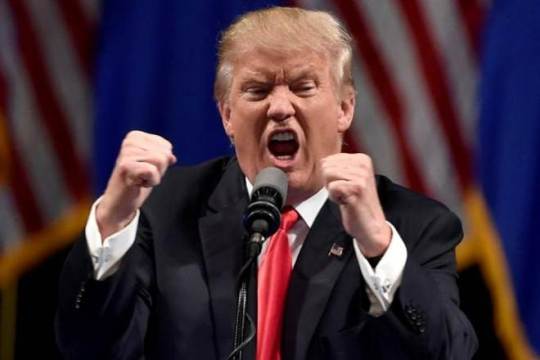Washington, May 1:The novel coronavirus, that has killed over 230,000 people globally so far and has shattered economies, emerged from a virology lab in the Wuhan city of China, US President Donald Trump claimed Thursday with a high degree of confidence.
"Yes, I have. Yes, I have," Trump told reporters at the East Room of the White House when asked if he has seen anything at this point that gives him a high degree of confidence that the Wuhan Institute of Virology is where the virus originated.
The president, however, refuse to provide any details, except for saying that investigations are on and it would be out soon.
Asked what gave him a high degree of confidence that the virus originated from the Wuhan Institute of Virology, he said, "I can't tell you that. I'm not allowed to tell you that."
The president, however, did not hold his Chinese counterpart Xi Jinping responsible for this. "I don't want to say that, I don't want to say that, but certainly it could have been stopped. It came out of China and it could have been stopped and I wish they had stopped it and so does the whole world wish they had stopped it."
Reiterating that this is something that could have been contained at Wuhan ground zero, he said that China could have contained it. "They were either unable to, or they chose not to. And the world has suffered greatly."
One of two things happened, he reasoned. "They either didn't do it and you know they couldn't do it from a competent standpoint or they let it spread and I would say probably it got out of control."
"But there's another case that how come they stopped all of the planes and all of the traffic from going into China, but they didn't stop the planes and the traffic from coming into the United States and from coming into all over Europe," he said, citing the example of Italy, the hardest-hit European country.
"This country (the US) is very lucky and I'm very lucky that I put the ban on China, as you know, very early on. In January, we put the ban on China and that was a very early day. That wasn't a late day, that was an early day. Then, we later put the ban on in Europe," he said.
Before holding them accountable, Trump said he wants to find out what happened. "I think we'll be able to get a very good -- a very powerful definition of exactly what happened. We're working on it strongly now and I think it's going to be very powerful," he said.
"But they could have stopped it. They are a very brilliant nation, scientifically and otherwise. It got loose, let's say, and they could have capped it. They could have stopped it, but they didn't. And they stopped the planes from going to China, but they didn't stop them from going to the rest of the world. What was that all about?” he asked.
"We should have the answer to that in the not-too-distant future and that will determine a lot how I feel about China," Trump said.
When asked if President Xi misled him, Trump said, "Something happened. I don't say misleading or not. I'll let you know that. I mean, I'll be able to give you that answer at some point in the hopefully not-too-distant future."
The entire world has suffered as a result of this, he said.
"We have had tremendous death and tremendous sorrow, sadness, and nobody's ever seen anything like it. So, have most of the countries of the world. They've suffered tremendously. It's something that is going to have to be dealt with. We'll have to see," said the president.






Comments
He is a hate monger and hope american public will discard him soon. I hope there will be more demonstration in US and other nations against inappropriae/unjust policy of this hate monger
Add new comment